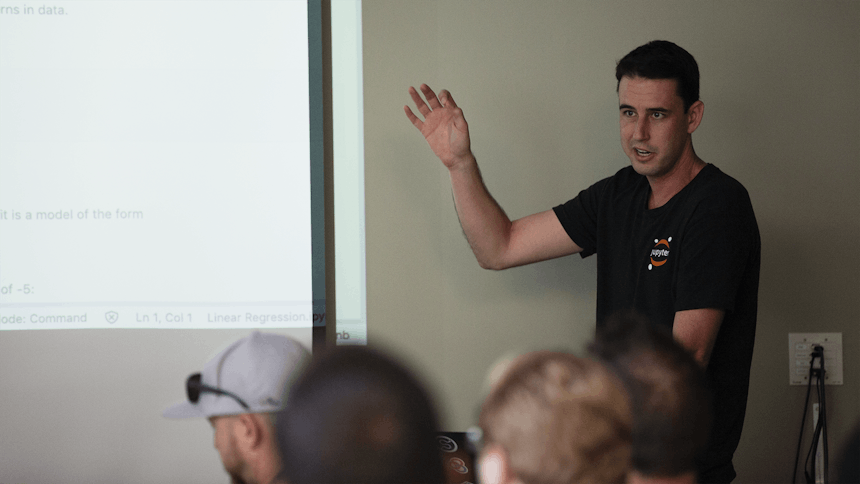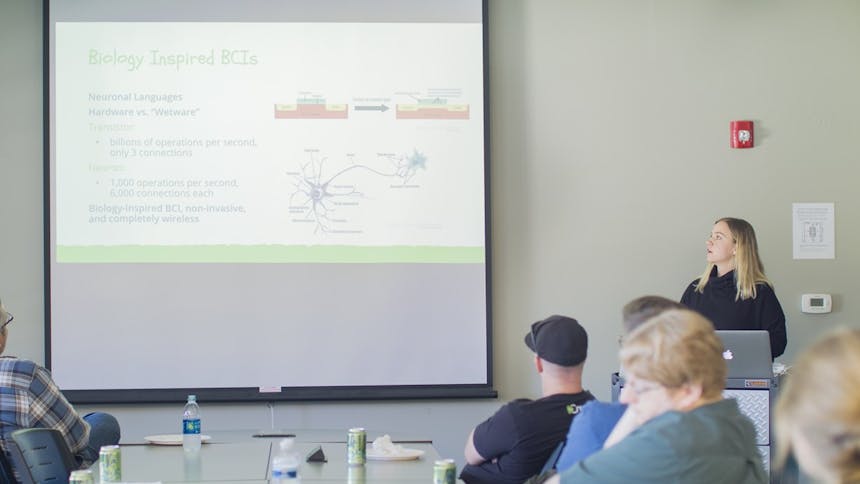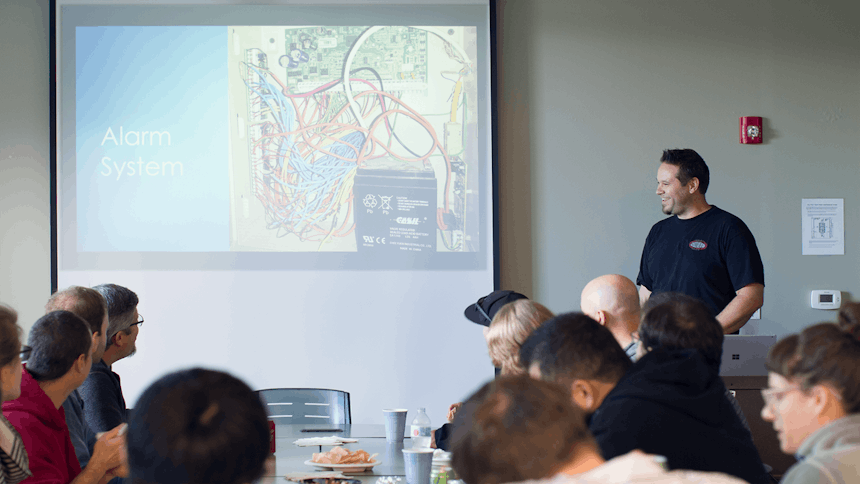Houston, Jupyter has gone to Mars, Project Jupyter that is, via the Curiosity Mars Rover. This open-source software project, started by a Cal Poly Professor and a student, helped gather data from the second-smallest planet in our solar system and sent it back to earth to a Jupyter Notebook for processing. And as if that wasn’t cool enough, Jupyter is an incredibly valuable tool even if you’re not planning on going to outer space any time soon. It has changed the way industries get work done, ranging from university research, to space exploration, to finance, to streaming.

SoCreate had the pleasure of hosting Zach Sailer, Project Jupyter’s lead software engineer and Cal Poly alumn, for a Lunch Meet in September. He gave us the rundown on the platform, what the team is up to at Cal Poly, and how they created a global community of software contributors.
Project Jupyter is open-source software with open standards and services for interactive computing. It’s essentially a Word document that can compute, and data scientists use it to code, analyze and discuss everything in a single document. Python powers Jupyter’s backend.
Zach told us people download Jupyter more than a million times per day. Wow! It’s completely free to use. A team of Jupyter engineers maintains the platform, as well as a community of developers who make contributions via community consensus on GitHub.
So how does Project Jupyter make money? Companies such as Netflix, Bloomberg, Amazon Web Services, and Cal Poly use the software to power their businesses and pay Jupyter steering council members to maintain the systems. Netflix, for example, uses Jupyter Notebooks to compute recommendations for what movies or TV shows you should watch next, and it has an entire Jupyter team to help out.
Cal Poly Physics Professor Brian Granger and UC Berkeley’s Fernando Perez lead the Project Jupyter collaboration, plus a dozen or more steering council members, hence the heavy presence on Cal Poly’s campus right next to SoCreate HQ.
We are lucky to have brainpower like this right in our backyard, and even luckier to have those brains visiting our monthly Lunch Meet Team-Led Learning Series. Thank you, Zach, for joining us!
To infinity and beyond,
You may also be interested in...

